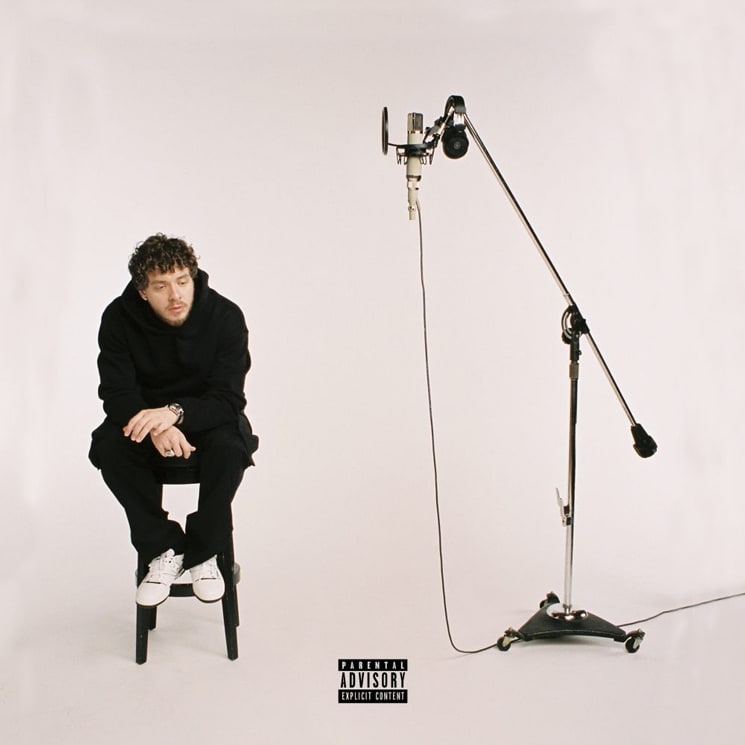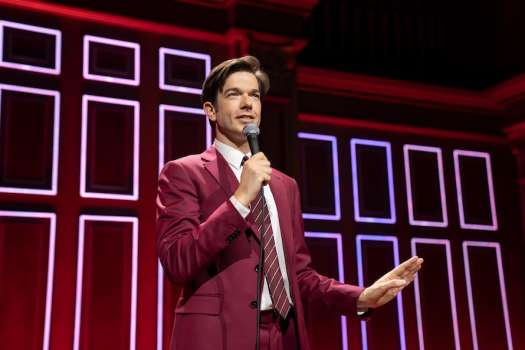There have been a lot of big-name rappers to emerge in the last 10 years, but it's becoming increasingly rare for a hip-hop artist to become a true A-list megastar à la Drake, Kendrick Lamar, J. Cole and Nicki Minaj. Artists with a seemingly endless sea of fans who can regularly sell out arenas and produce platinum singles and albums are less common with each passing year. You can count the list of hip-hop superstars that have come out in the last five years on one hand — Travis Scott, Cardi B and Doja Cat — and even then, one of those artists has fallen out of favour due to a horrible incident and another isn't considered a rapper by a sizable amount of artists and fans.
For a brief moment, Louisville rapper Jack Harlow had opened a window into superstardom. Harlow currently sits at 52 million monthly listeners on Spotify, putting him ahead of Kanye (47 million) and just under Drake and Doja Cat (54 million each). He has three massive singles — "WHATS POPPIN," "INDUSTRY BABY" (with Lil Nas X) and "First Class" — of which the first two each have over a billion streams. His goofy charisma has made him a fan favourite, and the fact that he's a white guy who doesn't rap like Eminem or make the fact that he's a white rapper part of his artistic profile separates him from many of his Caucasian peers. By all accounts, Jack Harlow seems like a guy you'd wanna hang out with, and that makes him appealing. He checks all the boxes of a universally adored artist who connects with everyone. All he really had to do was put out a good album with a few hits, and he'd join the exclusive ranks of true rap icons.
He did not do that.
Come Home the Kids Miss You feels like a record that is very conscious of its importance in the career arc of its creator. It's an LP with a bad case of 'industry brain'; every second of the album feels focus-grouped to the core, a concerted effort to make sure every target audience is reached. In exchange, much of the natural charisma Harlow broadcasts in and out of the booth is compromised, and the production comes off bland. At a point in time where mainstream rap has become as homogenous as ever and listeners are gravitating more and more to the oddest of the underground (most notably, the abrasive warble of another white rapper, Portland autocrooner Yeat), for Harlow to shoot for the lowest common denominator feels like a massive misstep.
The initial reception, both public and critical, for Come Home the Kids Miss You, has been highly unfavourable, to the point where those who haven't yet heard it may think it is offensively bad. That's not the truth; there are good moments here and there, and the only sin Harlow truly commits is that much of the LP is boring and forgettable, not even bad enough to be entertaining besides a few head-shaking lines (such as the moment where he says he's going to "fuck the earrings" off of a woman). The highlights of Come Home the Kids Miss You are the songs where Harlow strays away from serious introspection and lets his fun side out: "I'd Do Anything To Make You Smile" has an infectious bounce and "I Got a Shot," as generic as it is, will still have you singing along after a few listens.
Come Home the Kids Miss You also feels like a massive advertisement for Drake, a dollar-store variant of his oldest music and "time and place" tracks that he drops occasionally. Harlow puts on his best Aubrey impression on almost every song, a far cry from the unique personality that he broke out with on "WHAT'S POPPIN," a genuinely excellent radio-rap song that deserved every stream of its six-times-platinum certification. When Drake appears on Come Home, lending his voice to "Churchill Downs," it's a reminder that Harlow will never be as good at this type of song as the Boy. Drake sounds more comfortable and natural in the song than Harlow himself — one might as well turn off the album and relive Nothing Was the Same.
With a chance to enter the exclusive club of rap A-listers on the line, mimicking the world's biggest artist isn't a horrible idea. Harlow also counted Drake as a primary influence going back to his early days. But the boyish, college-kid spin he put on the styles of artists like Drake and Big Sean was what separated him, and to forgo that for a more 'mature' project takes away much of what made him special in the first place. Harlow still has time to bounce back and carve out a solid career, and his public persona almost guarantees that he will be hosting award shows and guest-judging on music competition television for decades to come. Yet his legacy as a musician may end up being another rapper who got all too close to the pantheon of hip-hop success, just to fall short right before the finish line.
(Generation Now/Atlantic)For a brief moment, Louisville rapper Jack Harlow had opened a window into superstardom. Harlow currently sits at 52 million monthly listeners on Spotify, putting him ahead of Kanye (47 million) and just under Drake and Doja Cat (54 million each). He has three massive singles — "WHATS POPPIN," "INDUSTRY BABY" (with Lil Nas X) and "First Class" — of which the first two each have over a billion streams. His goofy charisma has made him a fan favourite, and the fact that he's a white guy who doesn't rap like Eminem or make the fact that he's a white rapper part of his artistic profile separates him from many of his Caucasian peers. By all accounts, Jack Harlow seems like a guy you'd wanna hang out with, and that makes him appealing. He checks all the boxes of a universally adored artist who connects with everyone. All he really had to do was put out a good album with a few hits, and he'd join the exclusive ranks of true rap icons.
He did not do that.
Come Home the Kids Miss You feels like a record that is very conscious of its importance in the career arc of its creator. It's an LP with a bad case of 'industry brain'; every second of the album feels focus-grouped to the core, a concerted effort to make sure every target audience is reached. In exchange, much of the natural charisma Harlow broadcasts in and out of the booth is compromised, and the production comes off bland. At a point in time where mainstream rap has become as homogenous as ever and listeners are gravitating more and more to the oddest of the underground (most notably, the abrasive warble of another white rapper, Portland autocrooner Yeat), for Harlow to shoot for the lowest common denominator feels like a massive misstep.
The initial reception, both public and critical, for Come Home the Kids Miss You, has been highly unfavourable, to the point where those who haven't yet heard it may think it is offensively bad. That's not the truth; there are good moments here and there, and the only sin Harlow truly commits is that much of the LP is boring and forgettable, not even bad enough to be entertaining besides a few head-shaking lines (such as the moment where he says he's going to "fuck the earrings" off of a woman). The highlights of Come Home the Kids Miss You are the songs where Harlow strays away from serious introspection and lets his fun side out: "I'd Do Anything To Make You Smile" has an infectious bounce and "I Got a Shot," as generic as it is, will still have you singing along after a few listens.
Come Home the Kids Miss You also feels like a massive advertisement for Drake, a dollar-store variant of his oldest music and "time and place" tracks that he drops occasionally. Harlow puts on his best Aubrey impression on almost every song, a far cry from the unique personality that he broke out with on "WHAT'S POPPIN," a genuinely excellent radio-rap song that deserved every stream of its six-times-platinum certification. When Drake appears on Come Home, lending his voice to "Churchill Downs," it's a reminder that Harlow will never be as good at this type of song as the Boy. Drake sounds more comfortable and natural in the song than Harlow himself — one might as well turn off the album and relive Nothing Was the Same.
With a chance to enter the exclusive club of rap A-listers on the line, mimicking the world's biggest artist isn't a horrible idea. Harlow also counted Drake as a primary influence going back to his early days. But the boyish, college-kid spin he put on the styles of artists like Drake and Big Sean was what separated him, and to forgo that for a more 'mature' project takes away much of what made him special in the first place. Harlow still has time to bounce back and carve out a solid career, and his public persona almost guarantees that he will be hosting award shows and guest-judging on music competition television for decades to come. Yet his legacy as a musician may end up being another rapper who got all too close to the pantheon of hip-hop success, just to fall short right before the finish line.




